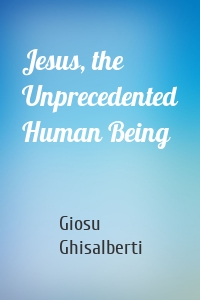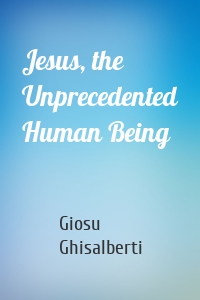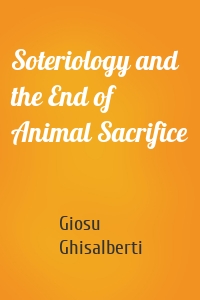Giosuè Ghisalberti
3 кн.
Jesus, the Unprecedented Human Bein...
Does Jesus remain concealed by the very traditions intended to portray him? History and theology define Jesus to be a 1st-century Galilean or the son of God, a man limited by his time and place or exalted as the Messiah and Christ. He has been recognized as a Jewish rabbi or the prophet of a coming apocalypse. The quest for the historical Jesus and theology’s Christ of faith may both be essential and undeniable in the history of scholarship. Secular historians and the Christian church have made...
| Автор | Giosuè Ghisalberti |
Jesus, the Unprecedented Human Bein...
Does Jesus remain concealed by the very traditions intended to portray him? History and theology define Jesus to be a 1st-century Galilean or the son of God, a man limited by his time and place or exalted as the Messiah and Christ. He has been recognized as a Jewish rabbi or the prophet of a coming apocalypse. The quest for the historical Jesus and theology’s Christ of faith may both be essential and undeniable in the history of scholarship. Secular historians and the Christian church have made...
| Автор | Giosuè Ghisalberti |
Soteriology and the End of Animal S...
Soteriology and the End of Animal Sacrifice traces the historically sustained critique of animal sacrifice in both the Jewish prophets and Greek philosophers and offers a reinterpretation of the fundamental expression of piety in both cultures. The Jewish prophets, such as Isaiah, and Greek philosophers beginning with Pythagoras, provided not only an unequivocal denunciation of animal sacrifice as a religious ritual. Equally important, they also offered an alternative conception of piety in and...
| Автор | Giosuè Ghisalberti |




